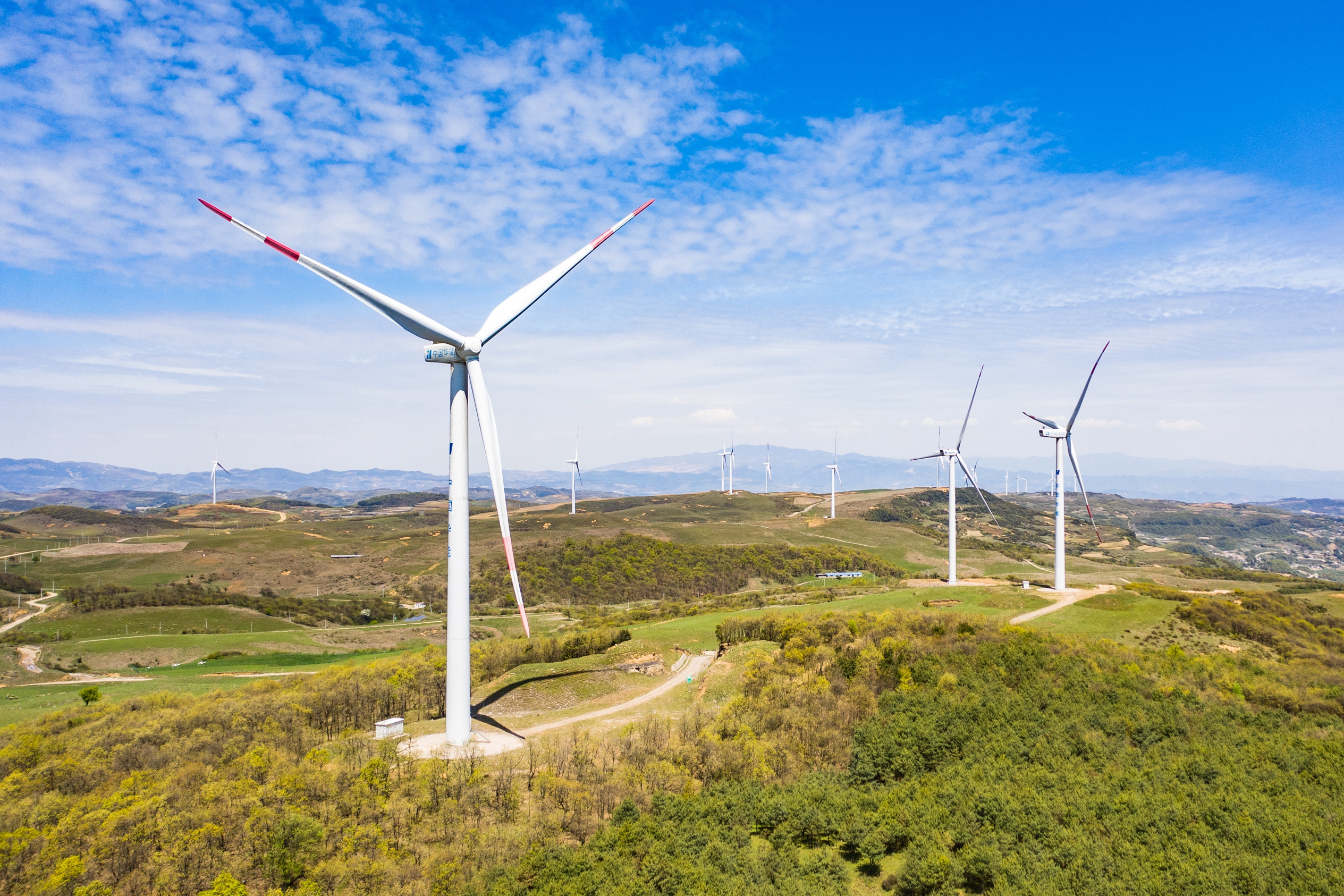Climate cooperation matters for everyone
- By Tom Fowdy
 0 Comment(s)
0 Comment(s) Print
Print E-mail China.org.cn, April 21, 2021
E-mail China.org.cn, April 21, 2021

On April 18, following a weekend of discussions during the visit of U.S. climate envoy John Kerry to Shanghai, the United States and China released a joint statement entitled "Addressing the Climate Crisis."
This pledged cooperation on reducing emissions, fulfilling the goals of the Paris Accords and advocating policies promoting development of renewable energy, stressing it is an issue that demands "seriousness and urgency," including China vowing to meet its strict emission targets by 2060.
The agreement is encouraging given that it comes at a time of tensions between Washington and Beijing on a host of issues.
China is committed to global cooperation on climate change. This is a multilateral, humanity-first initiative affecting the interests of all. The country has often called for building a global "community with a shared future for all humankind" or a "community of common destiny," built on an understanding that the international community is interdependent, reliant on each other for prosperity, and therefore, requiring that they work together in their best interests.
Never has this been more relevant in regard to climate change, because it comes within the most basic definition of a "shared future for all humankind." We only have one planet, and if we cannot work together in order to control global temperatures, we all lose.
This is why China chooses to cooperate, and its participation matters a great deal. It is the world's most populous country, its second largest economy and is the fourth largest country in terms of geographic size. Due to its developing nature, it has subsequently become an industrial powerhouse which not surprisingly makes it significant in terms of emissions.
As a growing economy of enormous size, its demand for energy is constantly surging, which has made it the world's largest importer of oil and coal. This means China's contributions can be "make or break" for the international community as a whole. However, this does not mean it is not up to the challenge or is in any way an "obstacle" to the task of achieving global climate change.
How does one cut emissions when one's energy demand is growing? Because of these unique circumstances which Western countries do not face, China has been aiming to cut its emissions by playing to its strengths, and that is being the world's largest producer and innovator of renewable energy patents, which the government is subsequently subsidizing.
China is the world's largest producer and exporter of solar panels, at an energy capacity more competitive than anywhere else in the world; it also leads the way in the production of electric batteries, e-cars and buses. The sustained growth in its enormous high-speed rail network is also helping reduce emissions. The country is also investing heavily in hydroelectric and nuclear power.
In every area, China is pushing to diversify its dependency on traditional forms of energy. It aims to halt its growth in emissions by 2030, by which time it will have attained a high enough level of development to wean itself off cheaper forms of energy such as coal, as well as to have established its electric car market sufficiently to transition away from petroleum and diesel vehicles.
Thus, China will not only be able to meet its own goals but also aid transition of other countries through its high-tech exports.
The world currently faces an uncertain future, and the transition to adapt is difficult, but nonetheless necessary. China is focusing a great deal of its resources on achieving this.
The Western media have often stigmatized and exaggerated the country's environmental situation due to it being in a different stage of development, and this often unfairly omits what it has already achieved.
This is thus not a politics of "blame" or "shaming" but it is an invitation to work together as an international community on a set of common goals and standards. There's work to be done, and there's a challenge to be met. In this case, the U.S., China and others are all prepared to do it.
Tom Fowdy is a British political and international relations analyst and a graduate of Durham and Oxford universities. He writes on topics pertaining to China, the DPRK, Britain and the U.S. For more information please visit:
http://www.china.org.cn/opinion/TomFowdy.htm
Opinion articles reflect the views of their authors, not necessarily those of China.org.cn.
If you would like to contribute, please contact us at opinion@china.org.cn.






Go to Forum >>0 Comment(s)